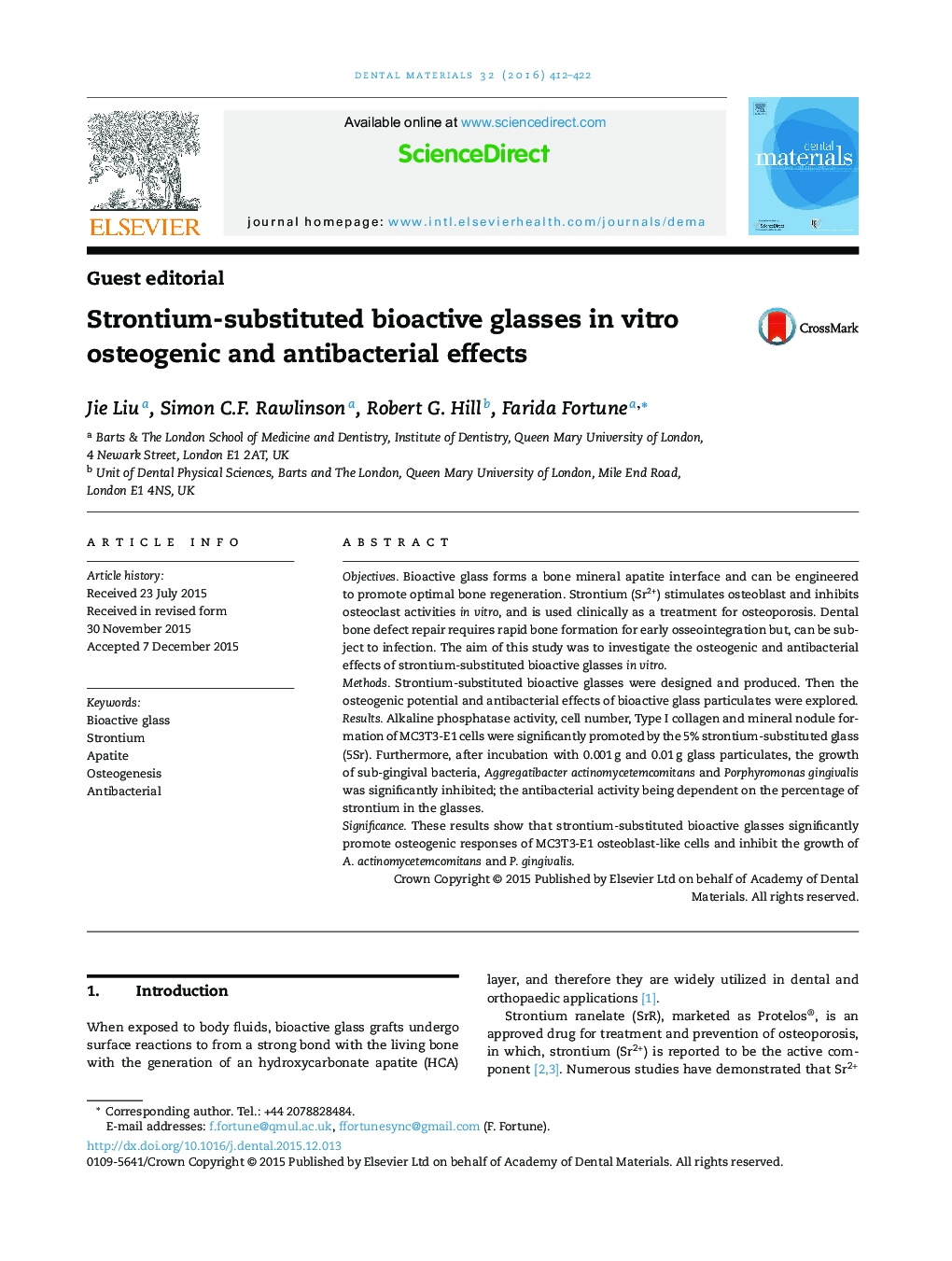| Article ID | Journal | Published Year | Pages | File Type |
|---|---|---|---|---|
| 1420519 | Dental Materials | 2016 | 11 Pages |
ObjectivesBioactive glass forms a bone mineral apatite interface and can be engineered to promote optimal bone regeneration. Strontium (Sr2+) stimulates osteoblast and inhibits osteoclast activities in vitro, and is used clinically as a treatment for osteoporosis. Dental bone defect repair requires rapid bone formation for early osseointegration but, can be subject to infection. The aim of this study was to investigate the osteogenic and antibacterial effects of strontium-substituted bioactive glasses in vitro.MethodsStrontium-substituted bioactive glasses were designed and produced. Then the osteogenic potential and antibacterial effects of bioactive glass particulates were explored.ResultsAlkaline phosphatase activity, cell number, Type I collagen and mineral nodule formation of MC3T3-E1 cells were significantly promoted by the 5% strontium-substituted glass (5Sr). Furthermore, after incubation with 0.001 g and 0.01 g glass particulates, the growth of sub-gingival bacteria, Aggregatibacter actinomycetemcomitans and Porphyromonas gingivalis was significantly inhibited; the antibacterial activity being dependent on the percentage of strontium in the glasses.SignificanceThese results show that strontium-substituted bioactive glasses significantly promote osteogenic responses of MC3T3-E1 osteoblast-like cells and inhibit the growth of A. actinomycetemcomitans and P. gingivalis.
